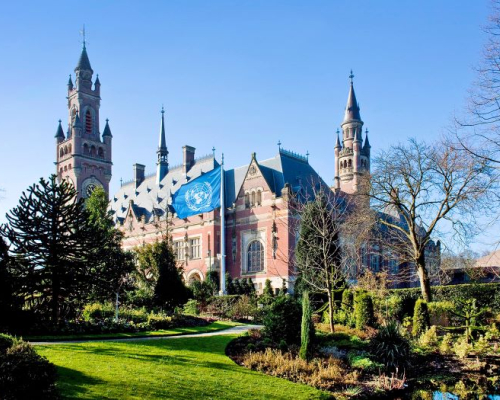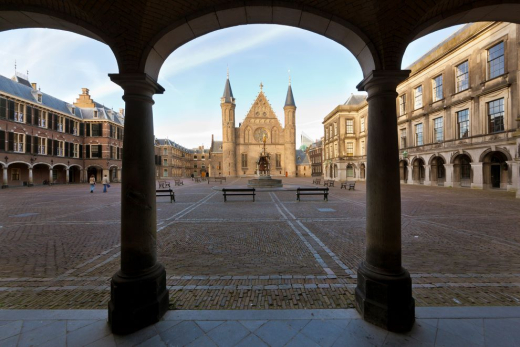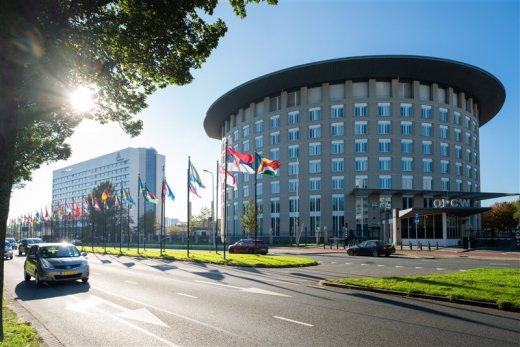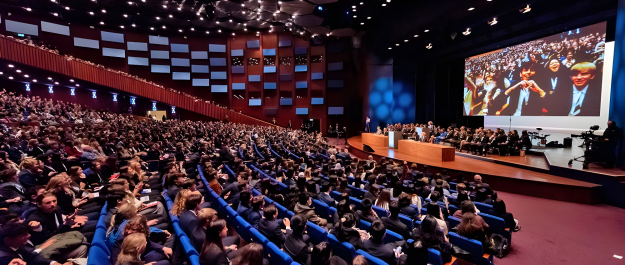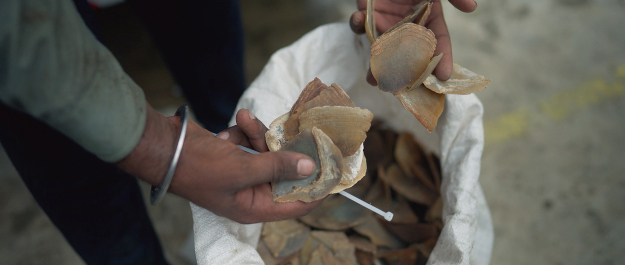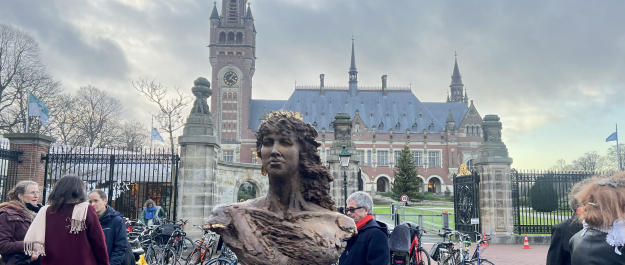The Hague is well known as the international city of peace and justice. But how did this small seaside town become the world’s legal capital? Was it just luck, or a series on events and decisions that made The Hague the place that everyone turns to, when law justice and accountability are being discussed?
The Hague’s historic halls of dialogue and decision-making
The Hague’s identity as a place for discussion and negotiation has been long established. Many tour guides start with the oldest building; the Knights Hall, now used ceremonially for the opening of Dutch parliament every year, but originally a place where armour and clashing of swords came second to talking and feasting. Beyond that small medieval centre of the city, the old hotels belonging to many of the Netherlands’ powerful cities, who gathered regularly in The Hague as neutral ground, bear witness to tradition of this city providing space to allow for discussion and negotiation, where the powerful economic interests worked with politicians to make the best decisions for the country.
The Hague’s 19th-century legal awakening
But it was at the end of the 19C that The Hague, as host of a series of international conferences, really became associated with both peace and international legal institutions. Europe was suffering from bloody wars. Czar Nicholas II of Russia proposed a conference on peace and disarmament. His niece was queen of the NL and her adviser, jurist Tobias Asser (The only Dutch Nobel peace prize winner) had both vision and connections. Asser had co-founded The Hague Conference on Private International Law - the international institution with the longest pedigree in The Hague.
Dutch historian Arthur Eyffingyer described Asser as "the embodiment of diplomacy. As persuasive as he was pragmatic, he was a supreme tactician, excellent negotiator and master of compromise."
The founding of the Peace Palace
Asser was also friends with a key adviser to the Czar, Russian jurist Friedrich (Fyodor) Martens, who proposed The Hague as venue. Although a failure in terms of disarmament, the Conference’s legacy was the creation of the Permanent Court of Arbitration in 1913. This "changed the destiny of the city" according to Eyffinger. The Permanent Court of Arbitration is one of the institutions based at the iconic Peace Palace, which was financed by American steel magnate Andrew Carnegie. Since then, The Hague has acted as a magnet to international legal organisations. The Permanent Court of International Justice was set up in 1922 and replaced by the International Court of Justice after the second world war as a key institution of the UN and its highest legal body.
Dutch economic interests in international peace and stability are reflected in article 90 of the constitution, where it states, 'The Dutch government shall promote the development of the international rule of law'.
What the city is now best known for worldwide is as the seat of the world’s only permanent international criminal court. Any notion of international agreement to deal with crimes against humanity were blocked during the Cold War. But by the 1990s, faced with the Balkans atrocities, the idea of a tribunal, as "a desperate hope to impose some measure of justice on the apocalypse," writes then US ambassador David Scheffer in 'All the Missing Souls' led to the establishment of the International Criminal Tribunal for the former Yugoslavia (ICTY) and the Dutch were asked to host it.
That was seen as a turning point in global ambition and bolstered The Hague as the clear candidate to host the International Criminal Court. The Hague had been defined as the legal capital of the world in 1993 by UN Sec Gen Boutros Boutros Ghali. Staff at the municipality of The Hague, were also buoyed by their success in attracting the Organisation for the Prohibition of the Chemical Weapons in 1992 against stiff competition from Geneva and Vienna. The Hague was promoted as a consistent host of international peace conferences, courts and tribunals over one hundred years.
